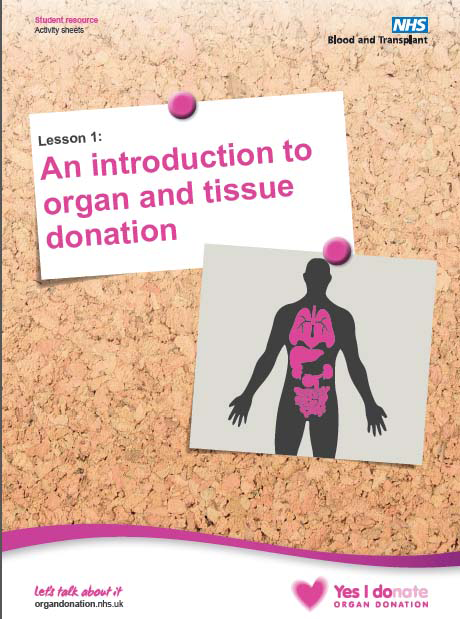Helping young people get the message
Organ donation can now be part of the school curriculum.
Last year around 1,400 people donated their organs after death, which meant many lives being saved and transformed. Yet still on average three patients die every day in need of a transplant because not enough people are prepared to say yes to organ donation.

In November 2015, working with a group of teachers, we co-created a suite of downloadable education resources aimed at students aged 11 to 16. These equip secondary school teachers with the information to educate their key stage 3 and 4 students about organ donation, making it easier for them to talk about organ donation with their family and friends.
The toolkit has three lesson plans and a condensed summary lesson, each linking to the Personal, Social, and Health Education (PSHE) National Curriculum. The lesson plans include PowerPoint slides, student activity sheets with accompanying videos, case studies and a factual student take home sheet to help conversations at home.
We have recently updated the resources to include tissue donation, specifically the donation of sight (corneas) and to emphasise the importance of discussing donation with friends and family. We also feature two new case studies (Ollie Storey who received a cornea and Izzy Sewell who is currently waiting for a kidney transplant).
We believe educating young people about organ and tissue donation is very important. So if you are a teacher, a friend of a teacher or a parent on the PTA, we need your support to encourage schools to introduce these easy to deliver lessons. We hope they will educate students, help stimulate debate and discussion among families and encourage students to think about their own organ donation decision.
In this issue of The Donor magazine
Save someone's life while going about yours
Have you had the conversation?



